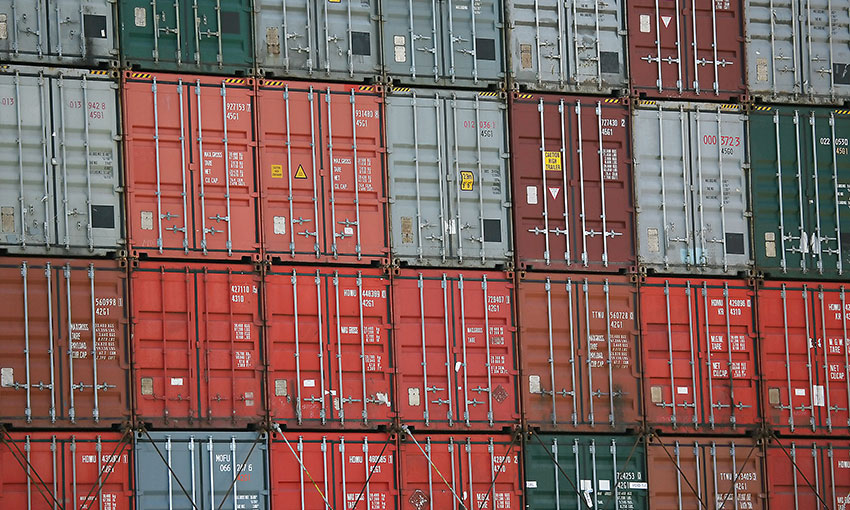CONGESTION in parts of the western Melbourne container freight precinct has been reported, particularly around empty container parks.
A range of issues have been noted. These include limited operating hours, spillover from similar congestion in Sydney, the China ban on Australian logs which previously helped clear out low quality shipping containers as well as the Black Friday sales and the pre-Christmas rush.
Containerspace managing director Mark Paterson said there was a need for more ECPs to extend their operating hours and commence trading from 5am through to 5 or even 6pm.
“Opening their depots on Saturday mornings would be beneficial as most carriers are operating minimum six days per week to cater for the container volumes currently entering the Port of Melbourne,” Mr Paterson said.
“The backlog in Sydney due to industrial disputes has also impacted the empties exiting Melbourne as the shipping lines put resources into that region to clear the empties back to Asia contributing to congestion in Melbourne.”
Union sources have talked of “container parks full of empty containers and not moving” and “congestion the worst it’s ever been”.
Allied Seafreight managing director Janice O’Connor said the issue was hurting the transport sector.
“The empty yards are absolutely disgraceful, we cannot get slots for days and the demurrage is then pushed back onto the carriers, including the additional costs of bringing the containers back to our yard,” Ms O’Connor said.
“Larger carriers are finding it even more difficult, it is creating massive congestion for all carriers. Our operators spend most of the day begging for slots.”
Ms O’Connor said some empty container parks had increased their charges by up to 80% during the last year.
“We are seeing no operational improvements as a result of this and seems to be just a way of revenue raising,” she said.
Ms O’Connor said Matchbox, a new model for exchanging boxes and challenging the empty park model, was offering a strong alternative to the traditional empty park model, however the shipping lines with the biggest issues did not utilise this service.
“Direct de-hires to the terminals is equally inefficient due to the lack of slots,” she said.
“Carriers have to on-charge the additional costs for direct terminal de-hires as we are in the same queue for a laden container and if we are running a bulk run we cannot combine the slots.”
In some cases, congestion has led to issues with local councils, notably outside the OCS facility in Brooklyn, owned by COSCO.
Brimbank City Council director city development Kelvin Walsh said they were aware “that there have been recent issues with trucks queueing along Jones Road and Old Geelong Road in Brooklyn while they wait to access a shipping container storage site on Jones Road”.
“The site operators have been issued with a number of planning infringement notices for non-compliance with permit conditions,” Mr Walsh said.
“Council officers will continue to monitor the situation and work with the site operators to address this issue within the powers available to us.
“We are aware that it is having an impact on surrounding businesses as well as the safe functioning of the roads in the area.”
OCS was approached for comment.
A spokesperson for Patrick also confirmed congestion, noting “strong import and empty container volumes plus lots of vessels significantly off-window due to PIA delays in October causing delays [out of] Asia and New Zealand”.
“It is a busy time of the year all round,” the spokesperson said.
Freight and Trade Alliance director Paul Zalai said it was “only a matter of time” before congestion at the Sydney ECPs started to impact those in Melbourne.
“Whilst not at the critical levels being experienced in Sydney, volumes of full imports are increasing and empty exports decreasing due to a range of issues,” he said.
Mr Zalai noted several causes:
- vessel rotations meaning they load extra empties in Sydney prior to calling in Melbourne and have less space for Melbourne empties
- while trying to get back on schedule some vessels are cutting / running from Melbourne only moving full containers.
“However industry do acknowledge that the ECPs and Port of Melbourne have been very proactive identifying a number of land parcels that could be available should the situation worsen,” Mr Zalai said.
“The more worrying situation at present is lack of resources and funding available within the Department of Agriculture, Water and the Environment to manage the increased volumes into Melbourne and the wider national surge pre-Christmas.
“Unacceptable delays are impacting the processing of entries through the COLS systems, inspections and release of containers post treatment.”
He said the FTA was in constant dialogue with the department to manage members concerns.

